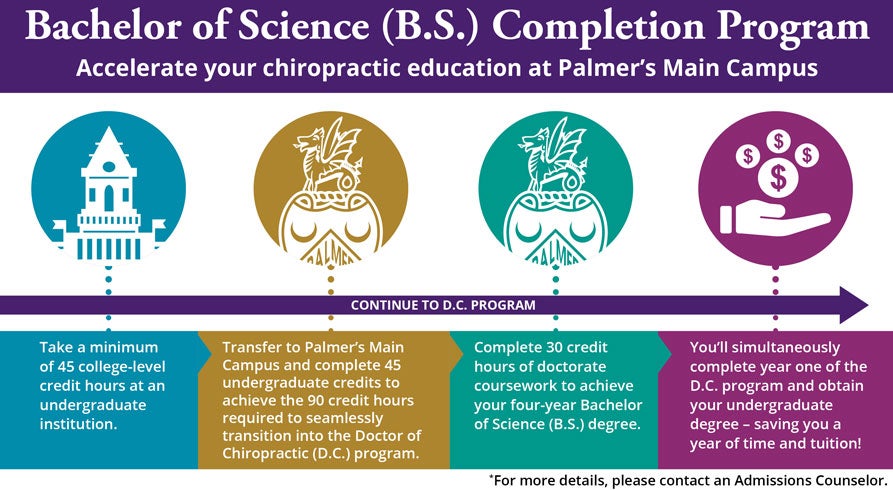
How many credits for a bachelor’s degree? It’s a question that often arises in the minds of prospective and current college students. Understanding the credit requirements for a bachelor’s degree is crucial for planning your academic journey and ensuring you meet the necessary qualifications for graduation. The number of credits needed can vary depending on factors like your major, the institution you attend, and the specific degree you’re pursuing.
This guide will delve into the intricacies of credit requirements for a bachelor’s degree, providing a comprehensive overview of the factors that influence these requirements and offering practical advice on how to navigate the credit accumulation process.
Understanding Credit Requirements

Earning a bachelor’s degree involves completing a specific number of credit hours. Credit hours are a standardized way of measuring the amount of academic work required for a degree. They represent the time spent in class, laboratory work, and other academic activities.
Credit Hour Systems
Different universities use different credit hour systems. Some universities use a semester system, while others use a quarter system. The number of credit hours required for a course varies depending on the university and the level of the course. For example, a general education course might be worth 3 credit hours, while an upper-level course in a major might be worth 4 credit hours.
- Semester System: In this system, the academic year is divided into two semesters, typically fall and spring. Students usually take courses that are 3 or 4 credit hours per semester.
- Quarter System: This system divides the academic year into three quarters, typically fall, winter, and spring. Courses are typically 3 or 4 credit hours per quarter.
Credit Hour Requirements for a Bachelor’s Degree
The number of credit hours required for a bachelor’s degree varies depending on the university and the major. However, the general range is between 120 and 130 credit hours. Some universities may require more or fewer credit hours, depending on their specific requirements.
Factors Influencing Credit Requirements
The number of credits required for a bachelor’s degree can vary significantly. Several factors contribute to this variation, including the specific major, the type of institution, and the degree type. Understanding these factors can help students make informed decisions about their educational path.
Major or Field of Study
The specific major or field of study plays a crucial role in determining the number of credits required for a bachelor’s degree. Some majors, like engineering or science, often require more credits than others, like humanities or social sciences. This is because these fields often have more specialized courses and laboratory requirements. For example, an engineering degree might require additional courses in mathematics, physics, and engineering principles, leading to a higher total credit requirement.
Type of Institution, How many credits for a bachelor’s degree
The type of institution, whether public, private, or online, can also influence credit requirements. Public institutions generally have more standardized credit requirements than private institutions. Private institutions, however, may have more flexibility in their curriculum and credit requirements, allowing for more specialized programs or unique course offerings. Online institutions often have similar credit requirements to traditional brick-and-mortar institutions but may offer more flexibility in terms of course scheduling and delivery.
Type of Bachelor’s Degree
The type of bachelor’s degree, such as a Bachelor of Arts (B.A.), Bachelor of Science (B.S.), or Bachelor of Fine Arts (B.F.A.), can also affect credit requirements. B.A. degrees typically emphasize the liberal arts and humanities, while B.S. degrees focus on science and technology. B.F.A. degrees are designed for students pursuing careers in the arts, such as music, theater, or visual arts. The specific requirements for each degree type can vary depending on the institution and the major.
For instance, a B.S. in computer science might require more credits in mathematics and computer programming than a B.A. in English literature.
Course Load and Credit Accumulation

Once you understand the credit requirements for your degree, the next step is to plan how you will accumulate those credits. This involves considering your course load and how you will manage your time effectively.
Sample Course Schedule
A typical semester course load for a full-time student is 12-15 credit hours. This translates to 4-5 courses, each carrying 3 credit hours. Here is a sample course schedule for a typical semester:
- Introduction to Psychology (PSY 101) – 3 credit hours
- College Algebra (MATH 110) – 3 credit hours
- Introduction to Biology (BIO 100) – 3 credit hours
- English Composition I (ENG 101) – 3 credit hours
Common Course Types and Credit Hours
The number of credit hours assigned to a course depends on the level of the course, the subject matter, and the amount of time and effort expected from students. Here is a table showcasing common course types and their associated credit hours:
| Course Type | Credit Hours |
|---|---|
| Introductory Courses | 3 |
| Advanced Courses | 4 |
| Laboratory Courses | 1-3 |
| Seminar Courses | 1-2 |
| Independent Study | 1-3 |
Transfer Credits
If you have taken courses at another institution, you may be able to transfer those credits to your current program. The number of transfer credits accepted varies depending on the institution and the program. You should contact the admissions office of the institution you are transferring to for more information.
Transfer credits can significantly affect the total number of credit hours you need to complete your degree. If you have a large number of transfer credits, you may be able to graduate in fewer semesters.
Graduation Requirements Beyond Credits
While credit hours are a crucial component of a bachelor’s degree, they’re not the only factor determining graduation. Several other requirements often come into play, ensuring a well-rounded education and preparedness for the future.
Academic Performance
Academic performance is a critical factor in graduating. A minimum grade point average (GPA) is usually required, which varies across institutions and programs. For instance, some universities might require a GPA of 2.0, while others demand a 3.0 or higher. A GPA represents the average of your grades in all courses, calculated using a specific grading scale. A high GPA demonstrates academic excellence and dedication to learning.
Residency Requirements
Many universities impose residency requirements, mandating that a certain number of credits be earned while physically attending classes at the institution. This ensures that students engage with the university community and benefit from its resources. The number of required residency credits varies, and it’s essential to consult the university catalog or academic advisor for specific information.
Specific Course Requirements
In addition to credit hours, universities often mandate specific courses within a degree program. These requirements ensure that students acquire foundational knowledge in their chosen field and develop essential skills. For example, a computer science degree program might require courses in programming, data structures, and algorithms.
Elective Courses
Elective courses offer students the opportunity to explore diverse academic interests and pursue areas outside their primary field of study. While they contribute to credit hour accumulation, elective courses also allow for personal and intellectual growth. Students can choose electives that align with their career goals, explore new passions, or delve deeper into specific subjects.
Internships and Research Experiences
While internships and research experiences might not directly contribute to credit hour accumulation, they are often crucial for graduation. Many universities require students to gain practical experience in their field through internships, research projects, or other hands-on activities. These experiences enhance career readiness, provide valuable skills, and can even lead to job offers upon graduation.
Resources for Credit Information: How Many Credits For A Bachelor’s Degree

Navigating the world of credit hours can feel overwhelming, especially when you’re just starting your academic journey. Fortunately, there are various resources available to help you understand and track your progress. This section will guide you through some reliable sources for credit hour information.
University Catalogs and Websites
University catalogs and websites are the primary sources for credit hour information. They contain detailed descriptions of each course, including the number of credit hours awarded. The catalog is a comprehensive document that Artikels all academic policies, including credit hour requirements for different degrees. University websites often have sections dedicated to academic policies, course catalogs, and degree requirements.
Academic Advisors
Academic advisors are invaluable resources for understanding credit hour requirements. They are familiar with the specific policies and procedures of your chosen program. They can help you interpret the information provided in the university catalog and guide you in selecting courses that meet your degree requirements.
Department Websites and Faculty
Department websites often provide information about specific programs and course offerings. You can find details about credit hour requirements for specific majors or concentrations. Faculty members within your chosen department can also provide valuable insights into the curriculum and credit hour requirements.
Online Credit Hour Calculators
Numerous online tools can help you calculate credit hours. These calculators can be useful for estimating the total credit hours needed for your degree and tracking your progress.
Table of Online Credit Hour Calculators
| Calculator Name | Description | URL |
|---|---|---|
| Credit Hour Calculator (Example) | This calculator helps estimate the total credit hours needed for your degree based on your chosen program and course load. | [Insert URL of calculator] |
| Credit Hour Tracker (Example) | This tracker allows you to input your completed courses and calculate the total credit hours earned. | [Insert URL of calculator] |
Ending Remarks
As you embark on your academic journey, understanding credit requirements is essential for a smooth and successful path to graduation. By carefully planning your course selection, utilizing transfer credits, and staying informed about institutional policies, you can confidently navigate the credit accumulation process and achieve your academic goals. Remember, resources are available to assist you, and seeking guidance from advisors and university departments can provide valuable insights and support.
Essential Questionnaire
What is the typical credit hour range for a bachelor’s degree?
The typical credit hour range for a bachelor’s degree is 120-130 credit hours. However, this can vary depending on the specific program and institution.
Can I take more than the minimum credit hours required?
Yes, you can take more than the minimum credit hours required. This may be beneficial if you want to graduate early or pursue a double major.
What happens if I don’t meet the credit hour requirement?
If you don’t meet the credit hour requirement, you may not be eligible to graduate. It’s important to stay on track with your course load and consult with your advisor to ensure you’re meeting all requirements.
What are some resources for finding credit hour information?
You can find credit hour information on your university’s website, in the course catalog, or by contacting your academic advisor.





